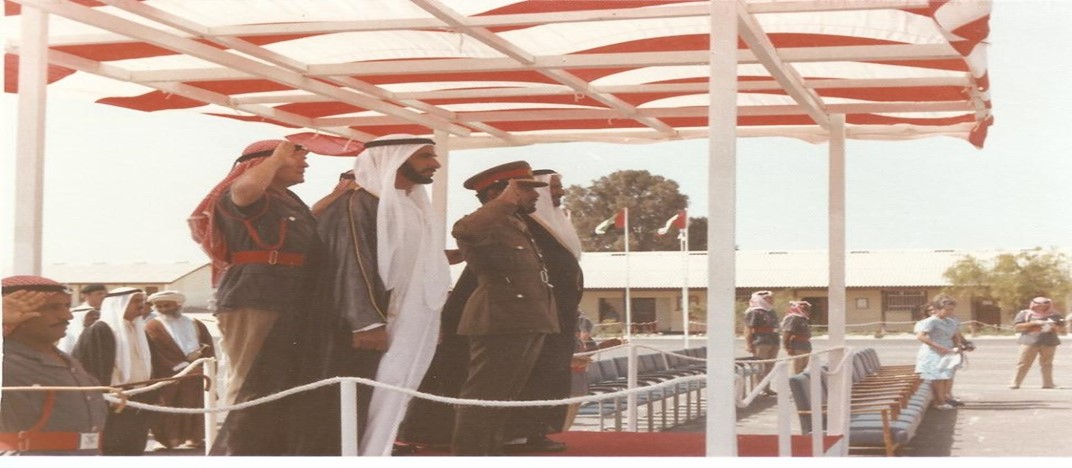The Dhofar Revolution: An Archival Analysis of the Conflict (1965-1976)
Abstract
 Abstract Views: 0
Abstract Views: 0
Britain's military presence in the Middle East underwent a significant transformation by the 1960s, characterized by contractions to establish smaller bases in Aden and the Gulf; however, the British military marked a significant change in contrast to its former stronghold at the Suez base. These bases protected vital oil interests and fulfilled Britain's obligations to local rulers. However, political developments within the Gulf and the Arabian Peninsula increasingly challenged Britain's strategic position. These evolving dynamics necessitated a re-evaluation of both diplomatic and military strategies leading to the most far-reaching anti-British revolution, the Dhofar Revolution in Oman. The scholarly discourses concerning the end of the revolution have highlighted the reintegration of the Dhofar society that was actively engaged in the revolutionary struggles of broader Omni society. Nevertheless, the mechanisms employed for their success/failures have not been covered in the existing literature. Consequently, this paper aims to fill this existing gap in the literature by contextually analysing the present literature and archival documents on the Dhofar war. For this purpose, the authors extensively utilized archival documents available within the Arabian Gulf Digital Archive (AGDA) in Abu Dhabi. Moreover, the Dhofari rebel literature derived from The Gulf Bulletin fervently promoted the communist revolutionary ideology. On the other hand, the Omani government's viewpoint was extensively disseminated through its military propaganda branch, aiming to counter the rebels' influence. This paper posits that, despite the strong support from the Communist bloc, the Dhofari Revolution ultimately failed because the rebels made hastened attempts to replace the region's traditional cultural values and Islamic beliefs with their novel ideological vision. This alienated the Dhofari population, causing the rebels to lose the support of the people they aspired to lead.
Downloads
References
Al Qasimi, Sultan. Muscat, and other Forts on the Shoreline of the Gulf of Oman, Sharjah: Al Qasimi Publications, 2009.
Boustead, Hugh. The Wind of Morning, London: Chatto & Windus, 1971.
Buttenshaw, Ian. Iranians support to Oman During the Dhofar War, RAO Publication, 2013.
Cordesman, Anthony. The Gulf and the Strate¬gic Stability: Saudi Arabia, the Military Balance in the Gulf, and Trends in the Arab-Israeli Military Balance. Colorado: Westview Press, 1984.
Buttenshaw, Ian. Dhofar War, 1965-1975: A Chronology and Synopses of Major Operations. Muscat: Royal Army of Oman Printing Press, 2010.
FCO 8/187, Telegram from Tehran to FCO Telegram No., 898, 14th December 1972.
FO 371/179929, 1965, Abu Dhabi army, H.M. Political Agency, Abu Dhabi 27 March 1965, Secret. Arabian Gulf Digital Archive, Abu Dhabi.
FO 371/185365, 1966, Omani rebel activity, British Consulate General (1013), Muscat. Phillips, Esq., C.G., British Residency, BAHRAIN.
FO 371/185365, 1966, Omani rebel activity, Letter from Bill Carden, British Consulate General, Muscat, to H. Phillips, Esq., C. G., British Residency, Bahrain 28th March 1966.
Goode, James F. “Assisting Our Brothers, Defending Ourselves: The Iranian Intervention in Oman 1972-750.”. Iranian Studies 47 no. 3 (2014): 441–62.
Halliday, Fred. Arabia without Sultan. Harmondsworth: Penguin, 1974.
Howarth, J. “An Appraisal of the Kuwait Operation of July 1961.” MSc Thesis, Wales University, Aberystwyth, 1973.
Jean-Pierre, Vienna. “Dhofar Guerrillas Fight against the Most Archaic of Government.” Summarized extracts from Lemonde Diplomatique, 4.1.1970.
Jeapes, Tony. SAS: Operation Oman. London: William Kimber, 1980.
Kelly, J. B. Arabia, The Gulf, and The West: A Critical View of the Arabs and Their Oil Policy. New York: Baster and Bols, 1986.
Ladwing, Walter C. “Supporting Allies in Counterinsurgency: Britain and Dhofar Rebellion.” Small Wars and Insurgencies, 19. No. 1, (2008): 62–88.
Peterson, J. E. “Guerrilla Warfare and Ideological Confrontation in the Arabian Peninsula: The Rebellion in Dhufar.” World Affairs 139, No. 4 (Spring 1977): 278-295.
Peterson, J. E. Oman’s Insurgencies: The Sultanate’s Struggle for Supremacy, London: SAQI, 2007.
Price, D. L. “Oman: Insurgency and Development,” Conflict Studies no. 53, (1975): 4–116.
“Ta'likan siyasiyyan li-l-Jabhah al-Sha'biyyah li-tahrir 'Oman wa-l-Khalij al-Arabi,” D irasat 'Arabiyyah, vol. 9, no. 4, (February 1973), 112. Two political reports by the Popular Front for the Liberation of Oman and the Arab Gulf.
The Gulf Committee. Documents of the National Struggle in Oman and the Arabian Gulf, 9th June Studies, London 1974.
The Gulf Committee, The Gulf Bulletin no. 1, London, 1971.
Tremayne, Penelope. “End of a Ten-Year War.” RUSI Journal for Defence Studies, vol. cxxii, (March 1977).

Copyright (c) 2024 Saif Albedwawi

This work is licensed under a Creative Commons Attribution 4.0 International License.

This work is licensed under a Creative Commons Attribution 4.0 International License. Authors retain copyright and grant the journal right of first publication with the work simultaneously licensed under a Creative Commons Attribution (CC-BY) 4.0 License that allows others to share the work with an acknowledgement of the work’s authorship and initial publication in this journal.







